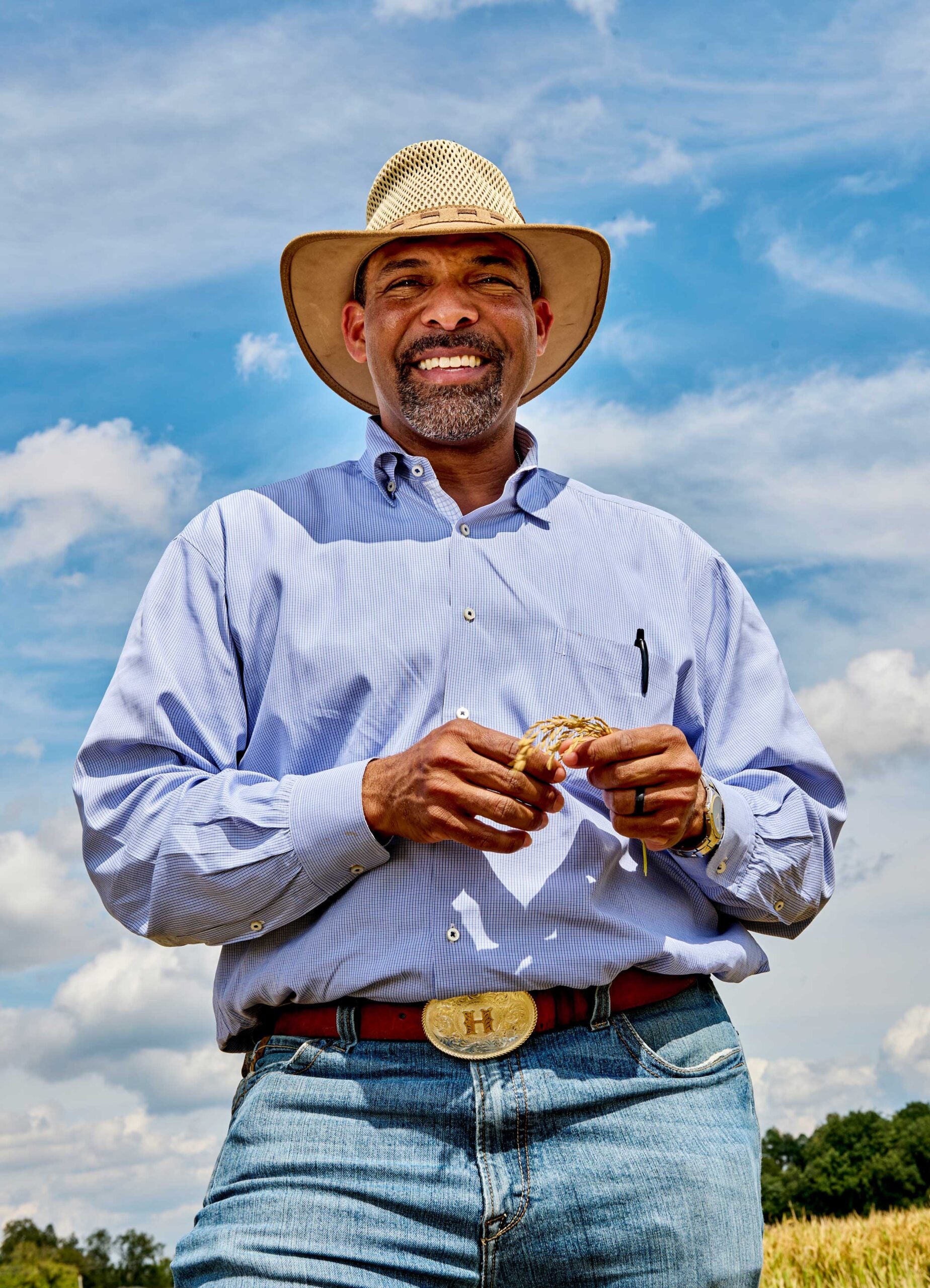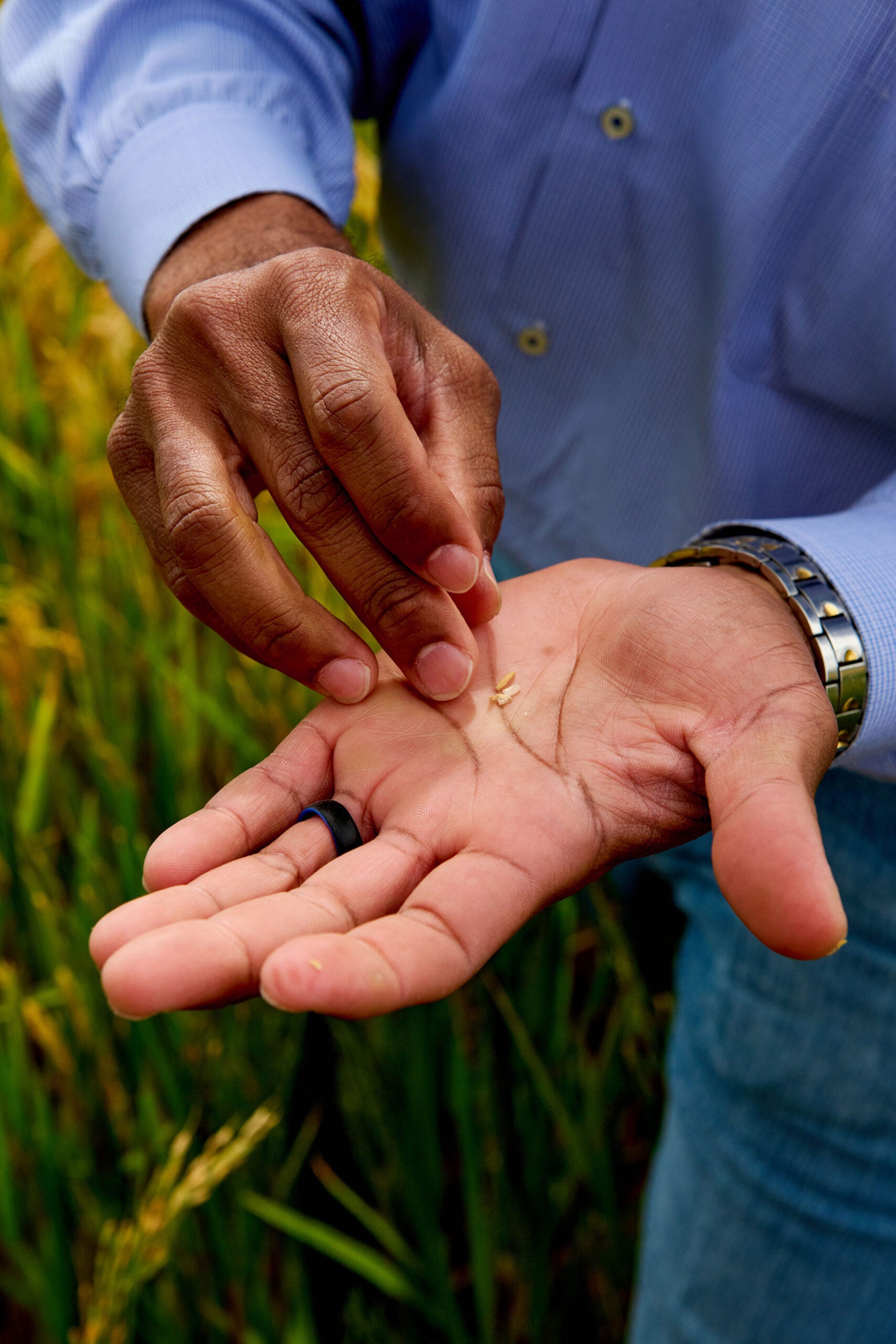PJ Haynie is not one of many. As a fifth-generation Black row crop farmer, he represents a fraction of a fraction.
He became an influential leader as the founder of the National Black Growers Council — where unifying people of a similar identity has been a driving factor. He splits his time between his family’s operation in Virginia and a state of the art rice mill and processing facility in Pine Bluff, Arkansas, that he and his business partners purchased in 2021.
His latest endeavor has been to become the owner of the only Black-owned rice mill processing facility in the United States. By doing this, he has taken on the responsibility of being an example for the community he represents. This has allowed him to create some new products that start and end with Haynie Family Farms and capture more of each agricultural market dollar.
The segment of Haynie Family Farms that operates out of Virginia is where row-crop commodities such as corn, wheat, and soybeans are grown. Most of those go toward large livestock operations where they are converted into feed. The more new and developing Arkansas side of the operation primarily has a rice field as well as the rice processing facility.

By being able to see the family business transform into what it is today, he has come to realize that the market is not the same as it was in previous generations.
“Forty years ago, my grandfather sold corn for $4 a bushel, 20 years ago my father sold corn for $4 a bushel, and presently I’m selling corn for $4 a bushel,” Haynie said. “The problem with that is Granddaddy’s combine cost $60,000, Daddy’s cost $150,000, and mine cost $700,000.”
His navigation of the agricultural industry has led him to something that fits the needs of his family, community, and the market. Haynie, has decided to push his traditional role of row-crop farming by trying to capture a larger amount of each consumer dollar that goes toward agricultural products.
“I’ve always learned that if you always do what you’ve always done, you’ll always get what always got,” he explained.
Coupled with the recent purchase of the Arkansas River Rice mill, which provides him the vertical integration to create value-added products, he believes that the launch of an expanded food brand of Haynie Family Farms will allow him to transition from producing commodities widely used as feed for livestock to creating finished products and controlling his margins.
“So I don’t want to sell wheat anymore, I want to sell flour. I don’t want to sell corn anymore, I want to sell corn in a bag,” Haynie said. “And the rice mill is the beginning of how we can start.”

Haynie says he is wrapping up the design for small retail packaging and is hoping to launch primarily e-commerce and follow with retail sometime in the middle of March. He is currently shipping to food service distributors. The direct-to-consumer portion of the brand will be set apart with the sense of identity that comes with being from Haynie Family Farms.
From producing inputs to processing products from beginning to end and capturing more value for his products Haynie Family Farms has found a way to shift to meet the market and make the company better off.
“Since we’ve started growing rice, rice is something that you and I can consume,” he said.
Family was a large motivation when going into this for Haynie.
“Family is integrated in development. Family is integrated in our operations. Our operation is just beyond me,” he said.
As a fifth-generation farmer, the legacy of the company means a lot. Plus, a new and involved endeavor like this allows dinner-table conversations to not be exclusive to certain family members talking about fuels or equipment.
“This conversation opens it up to many more members of the family to be a part of something,” he explained, saying that now they don’t have to necessarily work in the field to be engaged in the success of the business.
Encountering obstacles were not unexpected while developing this new brand launch. Marketing the brand as a Black-owned brand has been difficult depending on other food service distributor priorities, but Haynie explained that no matter the position of the purchasing company, Haynie Family Farms was going to stand firm in the middle of the road and show their business for what it is: a Black-owned family farm operation.
While packaging design is wrapping up, it’s exciting to see how the consumer market will react as consumer preferences have changed over the years toward products that come straight from farm operations.
Tahja Sims serves as the 2025 American Farmland Trust Agriculture Communications Intern at AGDAILY, with a focus on helping to amplify diversity and minority voices in agriculture. Tahja is currently an agricultural economics major and senior at Texas A&M University. She has served as an intern with the U.S. House of Representatives and is a member of Minorities in Agriculture, Natural Resources and Related Sciences (MANRRS) organization.




